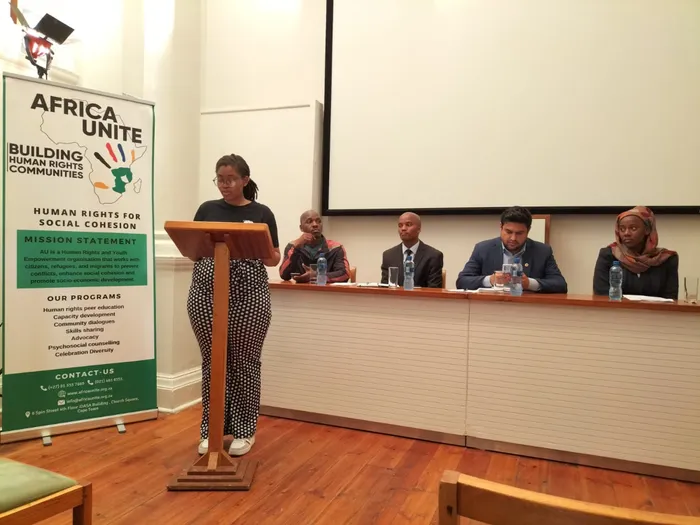Panels discusses devastation should more Cape schools phase out Maths and Physics

Africa Unite member Basetsana Mosia addressing attendees, on Friday. Picture: Shakirah Thebus/Cape Argus
Cape Town - A recent Cape Argus article on the phasing out of Mathematics and Physical Sciences at some Western Cape schools due to a low uptake and the struggle to find qualified teachers, prompted Africa Unite to facilitate a panel discussion on the matter.
Principals, teachers, learners, and other stakeholders gathered at the Spin Street Gallery on Friday to unpack the causes and underlying effects of this on the future of South Africa, as well as to provide recommendations.
Africa Unite member Basetsana Mosia said: “Without Maths and Science, the country will continue to run short of people in the field of engineering, science, and technology. On the other hand, the phasing out of maths and science will deny learners critical thinking, analytical skills, and problem solving capabilities which they will need to succeed in their future careers.”
Findings from short interviews conducted with learners and principals found that low marks caused learners to abandon the subjects, and the perception that they were hard were a factor in the low uptake, and a language barrier in teaching and learning made it difficult to understand, Mosia said.
ANC spokesperson on Education, Muhammad Khalid Sayed, said that between 2017 and 2022, 11 730 Grade 10 learners changed from Mathematics to Maths Literacy; between 2014 and 2022, 38 912 Grade 11 learners changed Mathematics for Maths literacy, and during the same period, 37 030 Grade 12 learners made the same switch.
Sayed said this was a worrying trend, and one that needed urgent intervention.
Teacher Chodwell Verenga said learners entered secondary education without knowing the basic concepts that should have been taught at a primary school level, and recommended that Physical Science be split into two: Chemistry and Physics.
EFF PR councillor Lungiswa Ntshuntshe said it was not a language barrier that was the problem, but that young children generally did not know how to speak and write in their own language.
shakirah.thebus@inl.co.za
Related Topics: